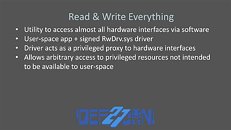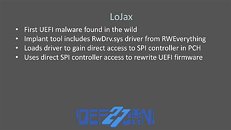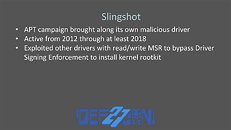New BootHole Vulnerability Affects Billions of Devices, Compromises GRUB2 Boot-loader
Even if you don't have more than one operating system installed, your PC has a boot-loader, a software component first executed by the system BIOS, which decides which operating system to boot with. This also lets users toggle between different run-levels or configurations of the same OS. The GRUB2 boot-loader is deployed across billions of computers, servers, and pretty much any device that uses a Unix-like operating system. Cybersecurity researchers with Oregon-based firm Eclypsium, discovered a critical vulnerability with GRUB2 that can compromise a device's operating system. They named the vulnerability BootHole. This is the same firm behind last year's discovery of the Screwed Drivers vulnerability. It affects any device that uses the GRUB2 boot-loader, including when combined with Secure Boot technology.
BootHole exploits a design flaw with two of the key components of GRUB2, bison, a parser generator, and flex, a lexical analyzer. Eclypsium discovered that these two can have "mismatched design assumptions" that can lead to buffer overflow. This buffer overflow can be exploited to execute arbitrary code. Devices with modern UEFI and Secure Boot enabled typically wall off even administrative privileged users off from tampering with boot processes, however, in case of BootHole, the boot-loader parses a configuration file located in the EFI partition of the boot device, which can be modified by any user (or malicious process) that has admin privileges. Thankfully, patched versions of GRUB2 are already out, and the likes of SUSE have started distributing it for all versions of SUSE Linux. Expect practically every other *nix vendor, server manufacturer, to release patches to their end-users. Find a technical run-down of the vulnerability in this PDF by Eclypsium.
BootHole exploits a design flaw with two of the key components of GRUB2, bison, a parser generator, and flex, a lexical analyzer. Eclypsium discovered that these two can have "mismatched design assumptions" that can lead to buffer overflow. This buffer overflow can be exploited to execute arbitrary code. Devices with modern UEFI and Secure Boot enabled typically wall off even administrative privileged users off from tampering with boot processes, however, in case of BootHole, the boot-loader parses a configuration file located in the EFI partition of the boot device, which can be modified by any user (or malicious process) that has admin privileges. Thankfully, patched versions of GRUB2 are already out, and the likes of SUSE have started distributing it for all versions of SUSE Linux. Expect practically every other *nix vendor, server manufacturer, to release patches to their end-users. Find a technical run-down of the vulnerability in this PDF by Eclypsium.




